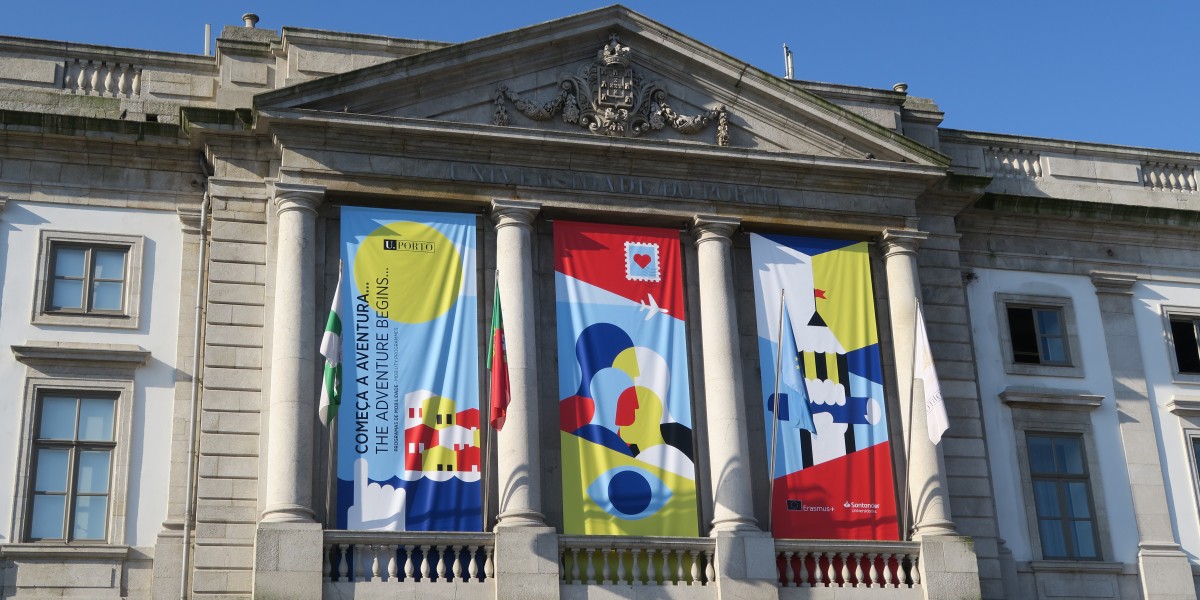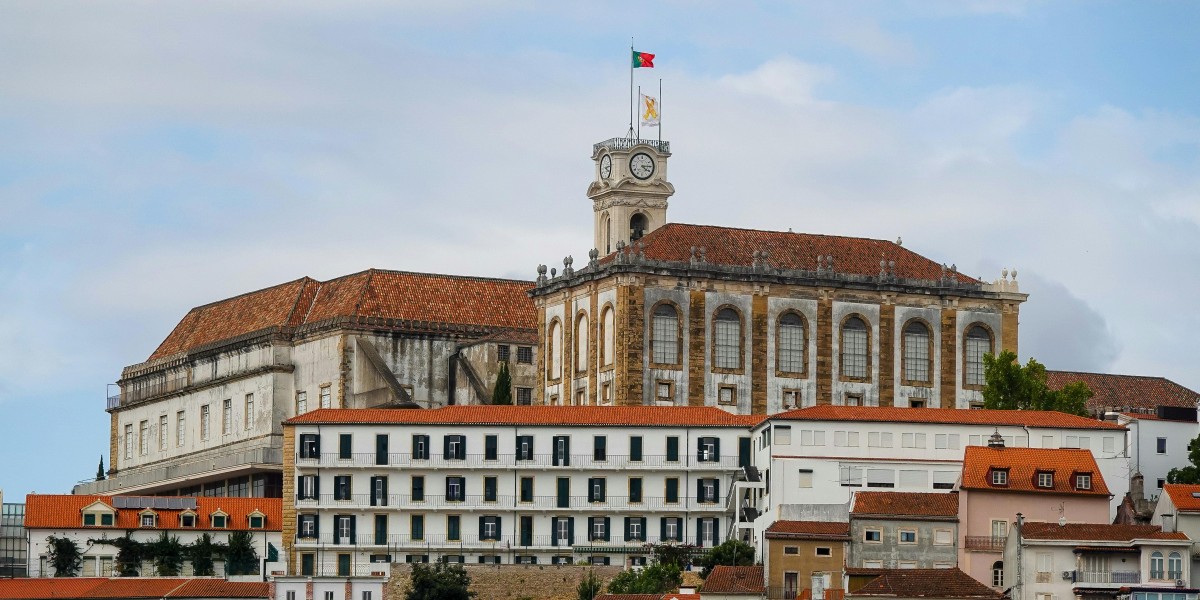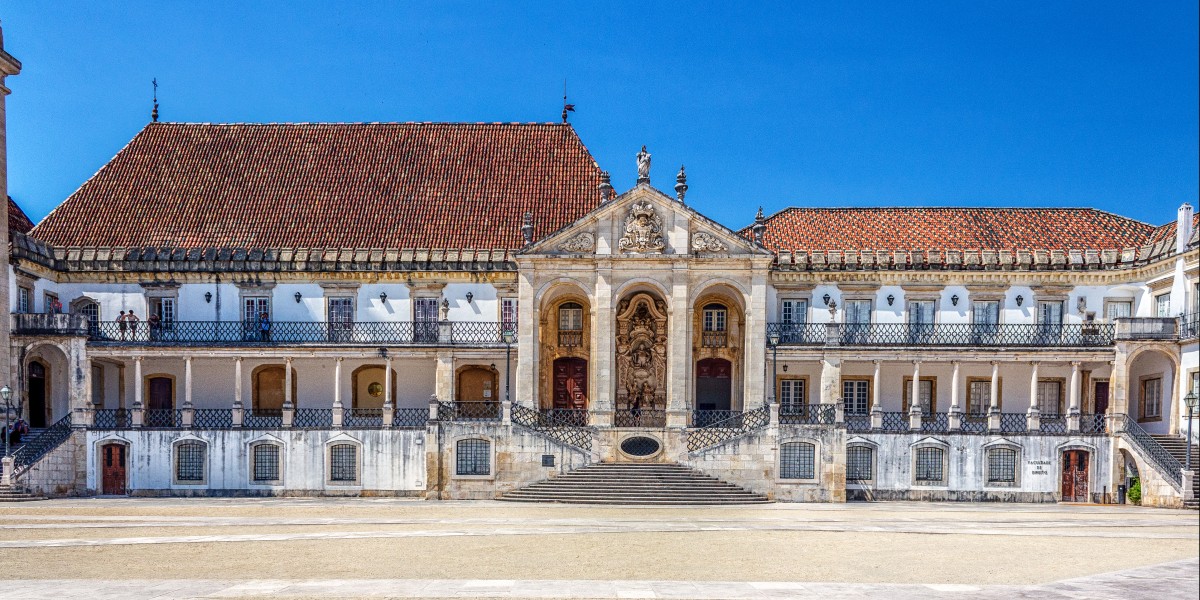
Portugal has quietly become a favourite for international students. Imagine sprawling plazas where students gather after class, affordable espressos in the neighbourhood café, and a mix of old-world culture with laid-back student life.
Cost of living is much kinder than in most of Western Europe, and there are plenty of ways to stretch your euros. What's more, Portuguese uni life is famously inclusive, with a good mix of Erasmus options, international societies, and language classes on tap. You may be drawn by world-class universities, generous scholarships, or just want to soak up life in the sunniest corner of Europe. Studying abroad in Portugal is worth considering, where finding yourself part of the local rhythm will feel pretty effortless.
- Why choose Portugal for your studies?
- How much does it cost to study in Portugal?
- Best universities in Portugal for international students
- Portugal’s most popular student cities
- Portuguese courses for international students
- Student accommodation in Portugal
- Applying to study in Portugal
- Getting a student visa as an international student
Why choose Portugal for your studies?

Portugal stands out as a destination where student life feels genuinely welcoming. There’s a sense of openness both on campus and in daily living that makes it easy to settle in. The academic scene suits those after both lively debate and a bit of breathing space, with approachable lecturers and smaller classes than you might expect in bigger European cities. Tuition fees are usually much more reasonable here than in the UK or the Netherlands. Plus, most students find that day-to-day costs stretch further than you’d guess, leaving more in the budget for travel or the odd pastel de nata.
Outside the lecture halls, Portugal’s student culture is a real highlight. City squares and riverbanks come alive with music festivals and student traditions, and there’s always a new café, a street party, or surfing trip on the horizon. Getting around is easy, too. Transport links make weekend trips an affordable habit, whether you’re off to a music festival in Porto or a lazy surf day along the coast. Safety isn’t much of a worry, health services are solid, and if you’re up for learning Portuguese, you’ll find patient locals and plenty of language support.
How much does it cost to study in Portugal?

Tuition fees are generally much lower than in most Western European countries, especially for EU students. However, even non-EU fees are often less eye-watering compared to the UK or the US. Bachelor’s and Master’s programmes at public universities typically range from about €700 to €1,500 per year for EU residents. Non-EU students can expect to pay from around €3,500 to €5,000. Private institutions tend to be pricier, but still offer decent value within the wider European context.
How much you need to live comfortably in Portugal really depends on where you settle and your lifestyle choices. You’ll find that rent, food, and transport add up to quite a handy student budget—roughly €700 to €1,000 per month covers most people for accommodation, groceries, public transport, and the odd night out. Eating out is affordable, and student menus at local restaurants won’t break the bank. Plus, a bit of part-time work on the side is possible for many students.
Best universities in Portugal for international students
Portugal boasts some highly regarded institutions, with a solid international reputation for both research and student experience. University of Lisbon, University of Porto, University of Minho, and University of Coimbra regularly top the charts, not just for the quality of teaching but also for their dynamic campus culture.
These universities support international students with orientation activities, language classes, and ready access to English-language services. Degree programmes span everything from economics and law to architecture and the creative arts. Coimbra in particular is known for its lively academic traditions and UNESCO-listed campus.
Portugal’s most popular student cities

Choosing where to settle as a student in Portugal really shapes your experience. Each city’s got its own flavour—some are all about historic traditions and tight-knit student circles, while others are bigger, busier, and a bit more modern.
Study in Lisbon
Portugal’s capital is the go-to for those who like their student life with a bit of buzz. It’s the biggest melting pot in the country, full of creative energy, fado shows, and start-up cafés. The universities here—like Universidade de Lisboa and NOVA—offer a huge variety of English-taught courses, especially strong in business, engineering, and international relations. You’ll find students from all over the world studying in Lisbon, a fair few digital nomads, and loads of opportunities to dip into the city’s cultural scene or find internships in tech or media.
Study in Porto
Porto strikes a nice balance. Big enough to keep you busy, but with a friendly, artsy feel. The city is a draw for anyone into design, architecture, or the creative industries. There’s a strong alternative scene, especially around the art school and indie bars near Rua de Miguel Bombarda. The University of Porto is solid in sciences, engineering, and the arts, and it’s common to spot student gigs, exhibitions, or food markets in the city centre.
Study in Coimbra
Coimbra feels like a true student bubble. Compact, historic and buzzing with tradition. The University of Coimbra is famous for law, medicine, and the sciences, but it’s really the student traditions that steal the show. Imagine capes and ribbons, open-air serenades, and the week-long Queima das Fitas festival every spring. Everything’s within walking distance, so you’re never far from a riverside terrace or a late-night pastelaria serving Portuguese sweet treats.
Study in Braga, Aveiro, or Faro
For a slower pace, these smaller cities fit the bill. The historic town of Braga is great for anyone into tech and engineering, with a lively but manageable city centre and easy links to the north of Portugal and Spain. Aveiro stands out for its unique canals, bright student scene, and proximity to the coast. Faro is the heart of the Algarve: it’s more relaxed, with good marine science programmes and an outdoorsy, sun-loving vibe.
Portuguese courses for international students

Picking up some Portuguese can really make a difference to daily life and help you settle in. It’s also a big plus for part-time jobs, internships, and socialising with locals. Most universities in Portugal run language centres where you can join courses either for credit or just to boost your confidence outside the classroom.
If you prefer something less formal, plenty of private schools offer flexible schedules, and there are always informal language exchanges at cafés or student bars. While you can get by with English in the main cities and on campus, having a bit of Portuguese under your belt opens far more doors, both academically and socially.
Can you study in Portugal in English?
Many Portuguese universities have steadily expanded their English-taught programmes, making the country an accessible choice for students who aren’t confident in their Portuguese just yet. You’ll find a variety of Bachelor’s and especially Master’s degrees delivered in English, covering everything from engineering and business to the social sciences. Lisbon, Porto, and Coimbra tend to have the widest selection, but even some smaller institutions are branching out.
The admissions process for English-taught courses often asks for proof of language ability—usually IELTS or TOEFL—though some universities do accept alternative evidence, especially if your previous studies were already in English.
Student accommodation in Portugal

Securing a comfortable and affordable place to live is rarely a headache in Portugal, especially compared to other Western European capitals. Most students opt for shared flats, private rooms, or university-run residences. However, uni residences usually fill up quickly, so many students search for private rooms.
Rent in Lisbon and Porto is higher than in smaller cities like Coimbra, but shared accommodation helps keep costs sensible. Expect to pay in the region of €300 to €500 a month, sometimes with bills included. Contracts are fairly straightforward, but it’s always smart to check what’s included (WiFi, heating, utilities).
Applying to study in Portugal

First off, you’ll need to gather the required documents—usually your academic transcripts, proof of identity, a CV, and, for most English-medium programmes, certification of your English skills. Some universities might also want a personal statement or reference letters.
Deadlines can vary by institution and whether you’re EU or non-EU, so it’s wise to check these well in advance. Once everything’s submitted online, you’ll get instructions on recognising foreign qualifications and, if you’re successful, details about applying for a student visa or residency permit. The process is generally smooth if you give yourself time for translating documents and gathering the right stamps.
Scholarships and financial aid for studying in Portugal
Portugal offers a respectable range of scholarships targeting both EU and non-EU students, with many specifically designed for international applicants. Government and university-run scholarships are the most common. These might cover tuition fees, living costs, or both. Some universities also offer merit-based grants, including options that don’t require IELTS, which is handy for students from countries like Pakistan or Bangladesh.
Application processes vary, with some awards requiring an extra essay or evidence of academic achievement. Keep an eye out for country-specific schemes as well, since a handful are earmarked for students from certain regions.
Getting a student visa as an international student
If you’re a non-EU/EEA student, you’ll need a Portuguese student visa to study for more than three months. Once you receive your acceptance letter from a Portuguese university, you can start your visa application. The documents usually include: proof of enrolment, a valid passport, health insurance, evidence of accommodation, and proof that you can support yourself financially during your studies. Once you arrive in Portugal, you apply for your residence permit at the foreign office.
